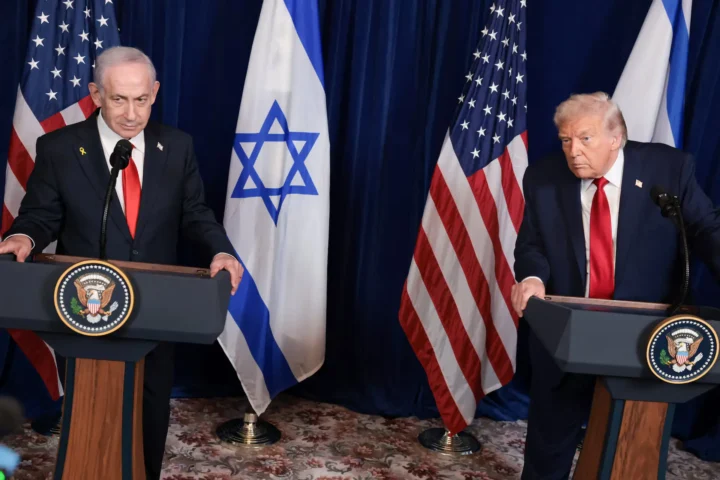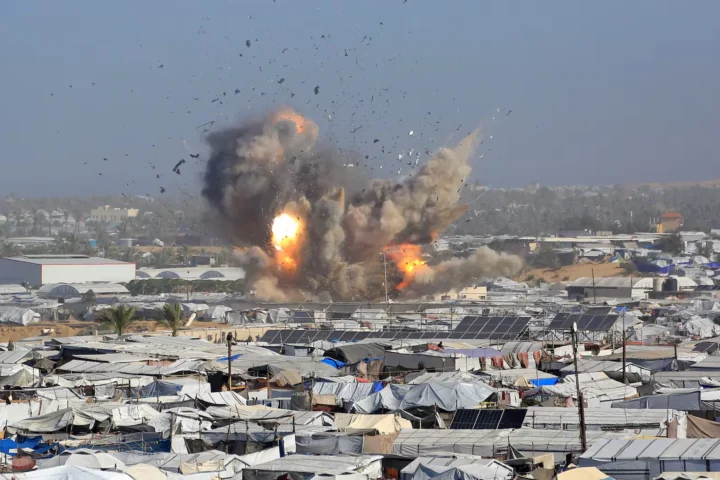Balochistan has plunged deeper into turmoil following violent crackdowns by Pakistani authorities on peaceful protests in Quetta, bringing international scrutiny to a human rights crisis characterized by enforced disappearances and state-backed violence.
Pakistani security forces have arrested Baloch women activists, including Dr. Mehrang Baloch and Sami Baloch, for peacefully protesting against enforced disappearances, killings, and atrocities committed by the Pakistani army in Balochistan—during the holy month of Ramadan.… pic.twitter.com/9bOudGmfHK
— Hassina Banoo Journalist (@HBjournalist) March 25, 2025
The crisis intensified dramatically last weekend when Pakistani security forces confronted protesters in Quetta, organized by the Baloch Yakjehti Committee (BYC) and led by prominent activist Dr. Mahrang Baloch. Demonstrators were demanding accountability for enforced disappearances of Baloch nationals—a decades-long issue with thousands of documented victims, according to recent reports by Global Human Rights Defence and Amnesty International. Authorities responded with force, utilizing tear gas, water cannons, and reportedly firing live rounds, resulting in three protesters killed and at least 13 injured, as confirmed by BYC.
PAKISTAN: More than 38 hours since Mahrang Baloch's unlawful detention, she is still being denied access to her lawyers and family. There are also worrying reports of continued arbitrary arrests and detentions across Balochistan province.
— Amnesty International South Asia, Regional Office (@amnestysasia) March 23, 2025
Pakistani authorities must immediately… pic.twitter.com/fsWYwSdv3W
Enforced disappearances, a longstanding tool of state oppression, disproportionately target Baloch nationalists, human rights defenders, and critics of the state, creating severe psychological trauma, economic hardship, and social disintegration for affected families.
Enforced disappearances are not just a violation of individual rights—they tear apart the very fabric of families and communities, leaving behind scars that never heal
The UN Working Group on Enforced and Involuntary Disappearances has repeatedly highlighted Pakistan’s systematic failure to address these disappearances, noting Pakistan’s continued non-compliance with international human rights treaties.

In reaction to the recent violence, Dr. Baloch, recently nominated for the 2025 Nobel Peace Prize, called for a province-wide strike that rapidly spread to major cities, including Chagai, Khuzdar, Washuk, and Surab. Protests erupted across the province, with demonstrators burning tires and barricading roads. Further violence occurred in Turbat, where security forces reportedly injured two children by opening fire on protesters.

Pakistani authorities swiftly arrested Dr. Baloch and other prominent BYC activists, levying severe charges such as terrorism, sedition, and murder—allegations contested by eyewitness accounts and video evidence. Dr. Baloch’s detention under Pakistan’s Maintenance of Public Order Ordinance has sparked further international condemnation. Her sister, Iqra Baloch, raised alarms over restricted access to legal counsel and fears for Mahrang’s safety while detained.
The arbitrary arrest and detention of my client @MahrangBaloch_ is being taken to UN Working Group on Arbitrary Detention. Follow for further updates on such an important case…
— Kurtuluş BAŞTİMAR (@Kbastimar36) March 24, 2025
Follow and support us to spread such a historical event. pic.twitter.com/FxCgMsOgUl
Amid the crackdown, a communications blackout across Quetta further impeded documentation and reporting of abuses, a tactic condemned by international observers for exacerbating the humanitarian crisis.
The international recognition of activists like Dr. Mahrang Baloch reveals the stark contrast between global celebration of peaceful resistance and Pakistan’s harsh criminalization of dissent
International human rights organizations, including UN Special Rapporteur Mary Lawlor, Front Line Defenders, and Nobel laureate Malala Yousafzai, have demanded Dr. Baloch’s immediate release, criticizing Pakistan’s actions as attempts to criminalize activism and suppress dissent.
Very concerned by reports that Dr Mahrang Baloch @MahrangBaloch_ and a number of other HRDs have been arrested in #Balochistan following a crackdown on Baloch Yakjehti Committee protesters in Quetta @PakUN_Geneva pic.twitter.com/6yHYDvoMpA
— Mary Lawlor UN Special Rapporteur HRDs (@MaryLawlorhrds) March 22, 2025
Chief Minister Sarfaraz Bugti dismissed allegations of widespread enforced disappearances as “systematic propaganda,” citing disputed government claims of resolution rates. Critics like Taj Baloch assert that state denial perpetuates impunity and fosters mistrust between the government and local populations, further fueling separatist sentiments.
Dr. Baloch’s international recognition—including her Nobel nomination and inclusion in BBC and TIME lists—has likely intensified scrutiny from Pakistani authorities, perceiving her global prominence as a direct threat to state narratives and control.
Despite state suppression, widespread protests persist across Balochistan and other major Pakistani cities, illustrating the resilience of activists amid escalating violence and intimidation.
Sammi Baloch, a recognized international human rights activist, has been handcuffed by Pakistani forces due to her advocacy against human rights violations in Balochistan. Her struggle has drawn significant attention to the fact of enforced disappearances and other human rights… pic.twitter.com/syn3GstizA
— Hafsa Baluch | ھپسہ بلوچ (@hafsa__baloch) March 25, 2025
Global Human Rights Defence has urgently called for independent investigations, legal accountability, increased transparency, international pressure, and comprehensive support for victims’ families to address enforced disappearances in Pakistan. Without substantial action, experts warn the cycle of violence, human rights abuses, and enforced disappearances is likely to continue, deepening Pakistan’s human rights crisis and threatening its democratic integrity.











